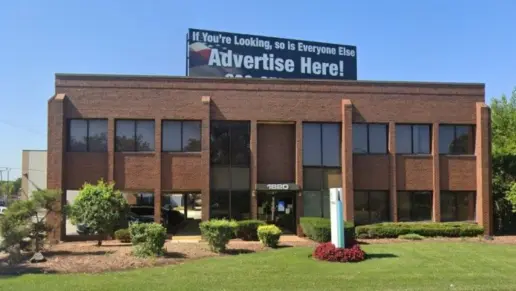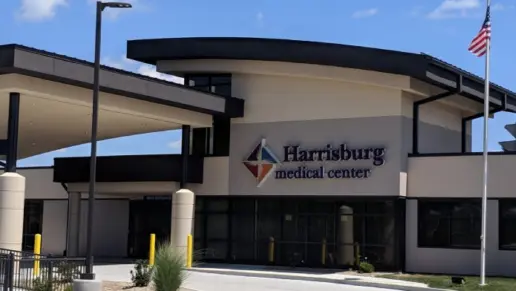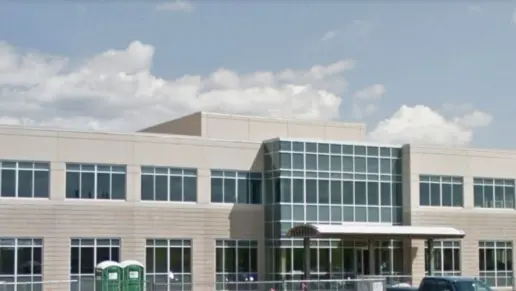About Northwestern Medicine Osher Center for Integrative Health
Northwestern Medicine Osher Center for Integrative Health is a premier national provider of high-quality and personalized integrative medicine. The facility is located just off North Michigan Avenue in the Streeterville neighborhood of downtown Chicago., Illinois They’re a few blocks from Lake Michigan Waterfront and Jane Addams Memorial Park.
Integrative medicine combines primary medical care with complementary therapies like acupuncture, yoga and nutrition. This fosters whole-person care supporting wellness of the mind, body and spirit. They’re part of Northwestern Medicine, a reputable healthcare network affiliated with Northwestern University.
They accept Medicaid and Medicare alongside various Medicare Advantage and Medicaid Managed Care programs. Financial assistance is available for eligible uninsured and underinsured patients. Some of their services incorporate telehealth for added convenience.
Whole-person Care for Optimal Wellbeing
Northwestern Medicine Osher Center for Integrative Health brings together compassionate specialists from various fields of integrative medicine to provide you with the highest quality care. Services range from nutritional therapy and Chinese herbal medicine to acupuncture, massage therapy and yoga to help manage stress. They even incorporate traditional Chinese medical practices like Gua Sha, cupping, Tai Chi and Qi Gong to restore and maintain health and longevity.
They offer fitness and group wellness classes, both in-person and online, covering activities like line dancing, Pilates and endurance training. You’ll work with their care team to determine which of these complementary therapies is suitable for your well-being. This ensures customized care that delivers optimal health outcomes. The clinic also provides mental health therapy to help you manage stress and support emotional well-being.
Addiction Recovery Support in Chicago
Northwestern Medicine is a top provider of quality addiction treatment with programs ranging from medical detox to inpatient residential care and outpatient therapy, including medication-assisted treatment (MAT). The behavioral health experts in this clinic can provide substance use assessment and connect you to the appropriate level of care within their network.
It’d also be great to join the community classes, events and support groups Northwestern Medicine offers. These classes are available online and in person and are coordinated by educators. It’s a great way to build a support network and access community resources to benefit your long-term healing.
Latest Reviews
Rehab Score
Gallery
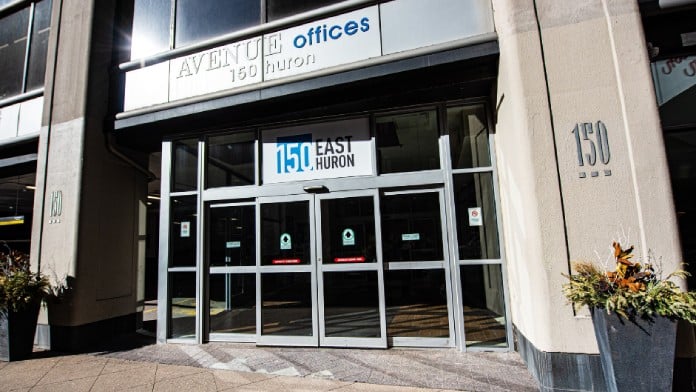
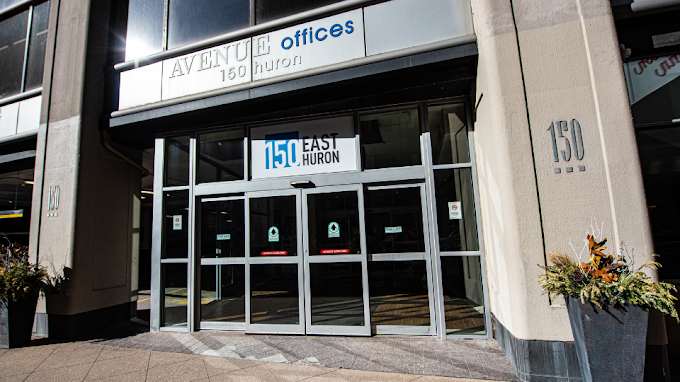
Accepted Insurance





Other Forms of Payment
Private insurance refers to any kind of healthcare coverage that isn't from the state or federal government. This includes individual and family plans offered by an employer or purchased from the Insurance Marketplace. Every plan will have different requirements and out of pocket costs so be sure to get the full details before you start treatment.
Medicare is a federal program that provides health insurance for those 65 and older. It also serves people under 65 with chronic and disabling health challenges. To use Medicare for addiction treatment you need to find a program that accepts Medicare and is in network with your plan. Out of pocket costs and preauthorization requirements vary, so always check with your provider.
Military members, veterans, and eligible dependents have access to specific insurance programs that help them get the care they need. TRICARE and VA insurance can help you access low cost or no cost addiction and mental health treatment. Programs that accept military insurance often have targeted treatment focused on the unique challenges military members, veterans, and their families face.
Medicaid is a state based program that helps lower-income individuals and families pay for healthcare. Medicaid covers addiction treatment so those enrolled can use their coverage to pay for rehab. When a program accepts Medicaid the client often pays very little or nothing out of their own pocket.
Addiction Treatments
Levels of Care
 Outpatient
Outpatient
 Intensive Outpatient
Intensive Outpatient
Treatments
Mental health rehabs focus on helping individuals recover from mental illnesses like bipolar disorder, clinical depression, anxiety disorders, schizophrenia, and more. Mental health professionals at these facilities are trained to understand and treat mental health issues, both in individual and group settings.
Programs

Adult Program

Young Adult Program
Clinical Services
Cognitive Behavioral Therapy (CBT) is a therapy modality that focuses on the relationship between one's thoughts, feelings, and behaviors. It is used to establish and allow for healthy responses to thoughts and feelings (instead of unhealthy responses, like using drugs or alcohol). CBT has been proven effective for recovering addicts of all kinds, and is used to strengthen a patient's own self-awareness and ability to self-regulate. CBT allows individuals to monitor their own emotional state, become more adept at communicating with others, and manage stress without needing to engage in substance abuse.
Dialectical behavior therapy in Illinois typically involves keeping a diary to track actions and emotions. Your therapist will use this diary to determine what to focus on during each session. In addition to individual sessions, you'll also attend group meetings where you are trained in coping skills.
Men and women in Illinois learn to recognize their strengths and capabilities within a group therapy setting. This helps to boost their self image and self confidence as they work toward overcoming addiction and building a healthier life. Group therapy is a perfect environment for you to see successful recovery behaviors and become inspired to manage your addiction.
In individual therapy, a patient meets one-on-one with a trained psychologist or counselor. Therapy is a pivotal part of effective substance abuse treatment, as it often covers root causes of addiction, including challenges faced by the patient in their social, family, and work/school life.
Trauma therapy addresses traumatic incidents from a client's past that are likely affecting their present-day experience. Trauma is often one of the primary triggers and potential causes of addiction, and can stem from child sexual abuse, domestic violence, having a parent with a mental illness, losing one or both parents at a young age, teenage or adult sexual assault, or any number of other factors. The purpose of trauma therapy is to allow a patient to process trauma and move through and past it, with the help of trained and compassionate mental health professionals.
During couples therapy in Illinois, you may work on a variety of relationship challenges. Couples therapy can address topics such as finances, children, health, addiction, intimacy, external stressors, and family relationships. You'll develop tools to address these types of challenges in healthy ways.
Research clearly demonstrates that recovery is far more successful and sustainable when loved ones like family members participate in rehab and substance abuse treatment. Genetic factors may be at play when it comes to drug and alcohol addiction, as well as mental health issues. Family dynamics often play a critical role in addiction triggers, and if properly educated, family members can be a strong source of support when it comes to rehabilitation.
Life skills training in Illinois gives you the tools you need to meet daily demands. These fall into three main categories: personal skills, interpersonal skills, and cognitive skills. While in rehab, you'll work on each of these areas as part of your recovery treatment.
Nutrition therapy, aka medical nutrition therapy (MNT), is a way of treating physical, emotional, and medical conditions through diet. Specific dietary plans are designed by professional nutritionists or registered dietitians, and patients follow them in order to positively affect their physical and mental health.
Both inpatient and outpatient substance use disorder treatment programs may offer experiential therapy in Illinois. This method is often provided in addition to talk therapy. It offers opportunities for creative expression and reflection on emotions through activities such as adventure courses, animal care, music, or culinary arts.
This eight-session group program is led by a leading tobacco treatment specialist. The program includes a comprehensive support group combined with individualized interventions. You will receive a step-by-step plan on how to quit, information on nicotine replacement and more. Behavioral approaches including relaxation, diet and physical activity techniques will help you stay smoke-free. Follow-up phone calls are made to all clients at regular intervals by the program facilitator.
Amenities
-
Yoga Studio
-
Wifi
Staff & Accreditations
Staff
Karen Mahnke, MSN, RN, NEA-BC
VP of Operations & Chief Nurse Executive
Accreditations

The Joint Commission, formerly known as JCAHO, is a nonprofit organization that accredits rehab organizations and programs. Founded in 1951, the Joint Commision's mission is to improve the quality of patient care and demonstrating the quality of patient care.
Joint Commission Accreditation: Yes
Contact Information
150 E Huron St
Suite 1100
Chicago, IL 60611









